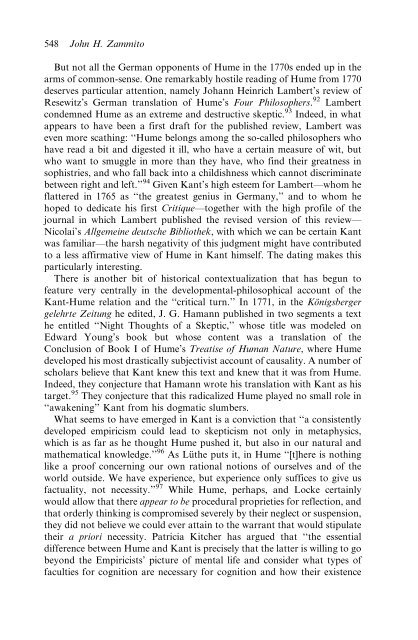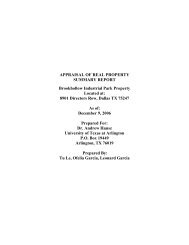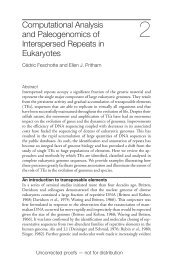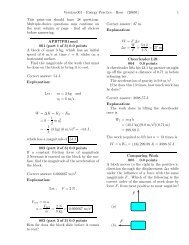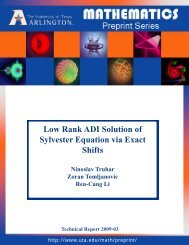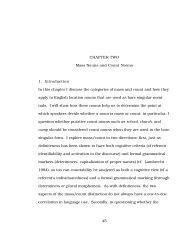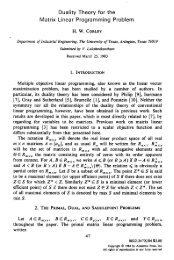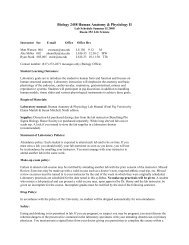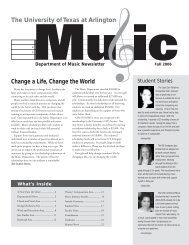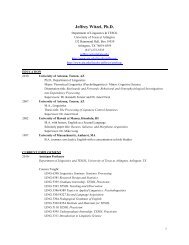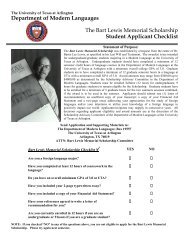Kant and Naturalism Reconsidered
Kant and Naturalism Reconsidered
Kant and Naturalism Reconsidered
Create successful ePaper yourself
Turn your PDF publications into a flip-book with our unique Google optimized e-Paper software.
548 John H. ZammitoBut not all the German opponents of Hume in the 1770s ended up in thearms of common-sense. One remarkably hostile reading of Hume from 1770deserves particular attention, namely Johann Heinrich Lambert’s review ofResewitz’s German translation of Hume’s Four Philosophers. 92 Lambertcondemned Hume as an extreme <strong>and</strong> destructive skeptic. 93 Indeed, in whatappears to have been a first draft for the published review, Lambert waseven more scathing: ‘‘Hume belongs among the so-called philosophers whohave read a bit <strong>and</strong> digested it ill, who have a certain measure of wit, butwho want to smuggle in more than they have, who find their greatness insophistries, <strong>and</strong> who fall back into a childishness which cannot discriminatebetween right <strong>and</strong> left.’’ 94 Given <strong>Kant</strong>’s high esteem for Lambert—whom heflattered in 1765 as ‘‘the greatest genius in Germany,’’ <strong>and</strong> to whom hehoped to dedicate his first Critique—together with the high profile of thejournal in which Lambert published the revised version of this review—Nicolai’s Allgemeine deutsche Bibliothek, with which we can be certain <strong>Kant</strong>was familiar—the harsh negativity of this judgment might have contributedto a less affirmative view of Hume in <strong>Kant</strong> himself. The dating makes thisparticularly interesting.There is another bit of historical contextualization that has begun tofeature very centrally in the developmental-philosophical account of the<strong>Kant</strong>-Hume relation <strong>and</strong> the ‘‘critical turn.’’ In 1771, in the Königsbergergelehrte Zeitung he edited, J. G. Hamann published in two segments a texthe entitled ‘‘Night Thoughts of a Skeptic,’’ whose title was modeled onEdward Young’s book but whose content was a translation of theConclusion of Book I of Hume’s Treatise of Human Nature, where Humedeveloped his most drastically subjectivist account of causality. A number ofscholars believe that <strong>Kant</strong> knew this text <strong>and</strong> knew that it was from Hume.Indeed, they conjecture that Hamann wrote his translation with <strong>Kant</strong> as histarget. 95 They conjecture that this radicalized Hume played no small role in‘‘awakening’’ <strong>Kant</strong> from his dogmatic slumbers.What seems to have emerged in <strong>Kant</strong> is a conviction that ‘‘a consistentlydeveloped empiricism could lead to skepticism not only in metaphysics,which is as far as he thought Hume pushed it, but also in our natural <strong>and</strong>mathematical knowledge.’’ 96 As Lüthe puts it, in Hume ‘‘[t]here is nothinglike a proof concerning our own rational notions of ourselves <strong>and</strong> of theworld outside. We have experience, but experience only suffices to give usfactuality, not necessity.’’ 97 While Hume, perhaps, <strong>and</strong> Locke certainlywould allow that there appear to be procedural proprieties for reflection, <strong>and</strong>that orderly thinking is compromised severely by their neglect or suspension,they did not believe we could ever attain to the warrant that would stipulatetheir a priori necessity. Patricia Kitcher has argued that ‘‘the essentialdifference between Hume <strong>and</strong> <strong>Kant</strong> is precisely that the latter is willing to gobeyond the Empiricists’ picture of mental life <strong>and</strong> consider what types offaculties for cognition are necessary for cognition <strong>and</strong> how their existence


